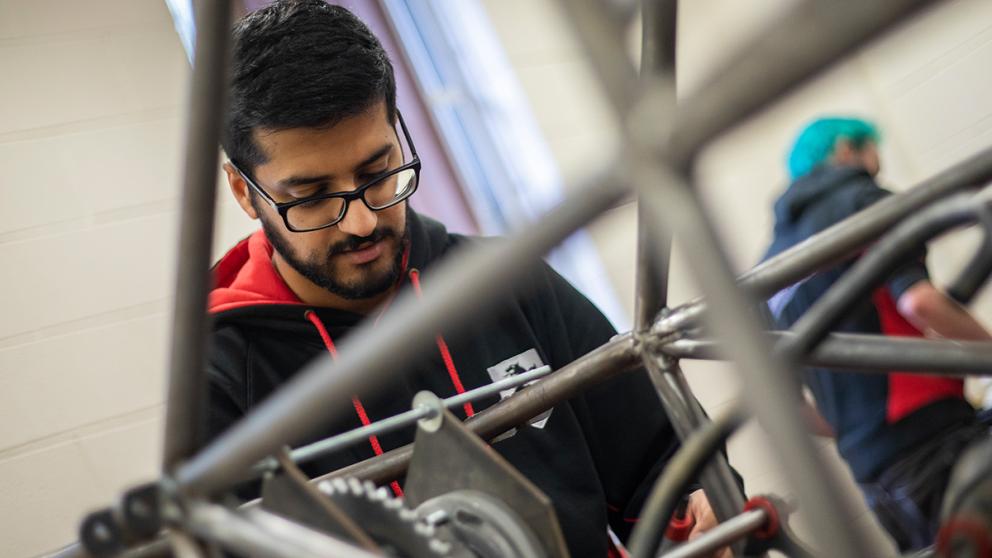Salford engineering apprenticeships bucking the trend

This week Pro Vice-Chancellor Jo Purves wrote in Business Insider magazine about how Salford is bucking a national trend by increasing applications for engineering apprenticeships.
Below is the article in full;
At the University of Salford, we are proud to be a major regional provider of degree apprenticeships. This area of our education portfolio has grown dramatically in the last five years with over 1600 learners now studying a variety of programmes with us. This is a perfect fit with our strategy of industry collaboration, which in turn has its roots in our history as a Royal Technical Institute created to supply a skilled and expert workforce to power the industrial revolution.
Our recent success in leading (along with lead FE partner Wigan and Leigh College) the successful bid for the Greater Manchester Institute of Technology opening in September 2023, will increase even further the profile and range of qualifications, including degree apprenticeships, that do not follow the traditional three-year full-time degree route but allow a wide range of learners to acquire industry relevant advanced technical skills at different entry and exit points. We and our founding FE partners, Wigan and Leigh College, Tameside College and Ada, The National College for Digital Skills as well as industry partners Siemens, TalkTalk, GCHQ and Laing O’Rourke are all committed to ensuring apprenticeships are a key pillar of the GMIoT, responding to regional skills gaps and productivity needs.
This is not without its challenges. In recent years, the number of students doing engineering apprenticeships has declined nationally, but here at Salford we are bucking that trend. Since launching our civil Engineering apprenticeship in 2018, we have seen a continuous growth in our intake of students on the programme. Indeed, we have doubled the number of civil engineering apprentices in the last two years, providing learners with an industry recognised, credible qualification. This is along with a key added advantage of apprenticeships as they do not add to student debt, guarantee full time employment, and provide long term financial stability.
Some of the many partners we work with have detailed why they think the decline is being seen and what institutions can do to prevent it. I regularly talk to employers to gauge how they see the value of apprenticeships and what they see as barriers to entry.
Stewart Scott, from Mayo Civil Engineering Ltd. says that in their experience as civil engineers, young people often come to the workplace ill-informed, with outdated misconceptions about what modern engineering apprenticeships offer. As an employer, they would like to see earlier promotion of modern engineering roles and greater knowledge sharing for all at 11-18 education level.
And Lee Womersley, from MGF, said: “In our experience, apprenticeships are proven to be an excellent route to achieving a sustainable career for individuals, whilst directly contributing to a sustainable workforce for businesses. They provide the individual with a strong skill set, derived from working and learning in parallel, whilst ensuring organisations retain staff to support long term business growth.
“As an industry we are not approaching the next generation of apprentices early enough, allowing traditional routes of post school education to cloud their judgment and decision. We have recognised this at MGF and we now work with our local high schools located close to our main engineering hub.”
So we still have much to do in helping our industry partners reach that future pipeline and promote the understanding the world of the modern engineer, but I am certain our work in maintaining the high standard of our Civil Engineering apprenticeships at the University of Salford will continue to help to see an increase in students taking part in this amazing employment opportunity.
For all press office enquiries please email communications@salford.ac.uk.
Share:
